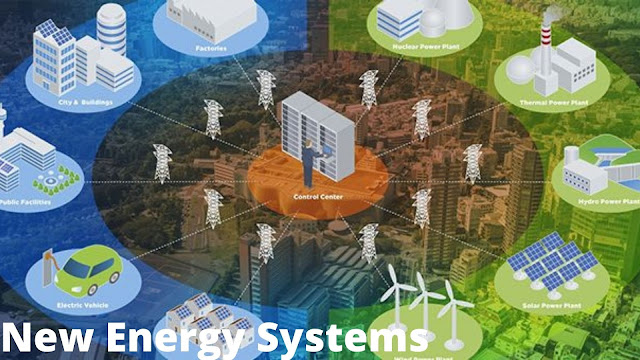New Energy Systems: puberty is lead a full smart energy systems
 |
New Energy Systems |
An emission-free, cost-effective and secure energy system means intelligent
integration of different sectors and innovative solutions.
Sectoral integration means the interconnection of industry, transport, and
heating through electricity, district heating, and gas networks. At the same
time, the customer's role is changing from an energy consumer to a storer and
potential producer.
The change in energy systems production emphasizes the importance of sectoral
integration. As an increasing share of electricity, in particular, is produced
using weather-dependent production methods, the flexibility offered by
electricity consumption, energy systems storage, and other forms of energy will
increase. Flexibility is needed to balance the energy system when consumption
and production do not meet. In this case,
storage technologies and control
power, such as hydropower, are important.
The importance of electricity in the sector-integrated world of energy systems
is growing. Achieving cost-effective emission reductions with the security of
supply also requires the efficient use of heat, gas, and hydrogen.
What is control power and why is hydropower a good regulator? Read more:
ADJUSTING FORCE
The technology of the future
Small reactors
A small reactor is usually a new type of power plant that is based on the use
of nuclear energy but is less efficient and smaller than an existing nuclear
power plant. Small reactors can be used to produce various forms of energy: electricity,
district heating, industrial process steam and heat, and freshwater production
from seawater.
There are high expectations and hopes for small reactors, and for good reason. Society needs to be carbon neutral and sustainable solutions are needed for energy production, industry, and transport. Nuclear energy production does not emit CO2. Small reactors are one of the energy production solutions to reduce CO2 emissions, especially in the production of electricity and heat. At the same time, they aim to address the challenges of building new nuclear.
Read more about small reactors:
SMALL REACTORS
Hydrogen economy
The increasing use of electricity by society, especially in industry and
transport, brings new challenges and demands on energy transmission and
storage. In the interconnection between sectors, gas and gas networks play a
diverse role as both a repository and an enabler of energy conversions. Of the
gases, the role of hydrogen in the energy system of the future will be emphasized.
The need for hydrogen is increasing and its uses are diverse. We are talking
about the hydrogen economy.
Hydrogen can replace a variety of fossil fuels. Hydrogen can be used in the use and storage of energy, in industrial production, and as a raw material for low-carbon fuels and materials. Hydrogen is also a major enabler for sector coupling and is a key intermediate in various Power-to-X solutions. X means either liquids or gases.
In Power-to-X technology, water (H2O) is decomposed into hydrogen (H) and oxygen (O) by electricity. Hydrogen can be further converted to chemical compounds, e.g. by adding carbon dioxide, methanol (CHO3) is obtained. The Power-to-X process releases a considerable amount of heat that can be used, for example, in district heating networks and industrial processes.
Electricity produced from renewables can be converted into hydrogen, other fuels, and even chemicals and materials. This results in clean fuels that can be used for heating, for example.














No comments:
Post a Comment